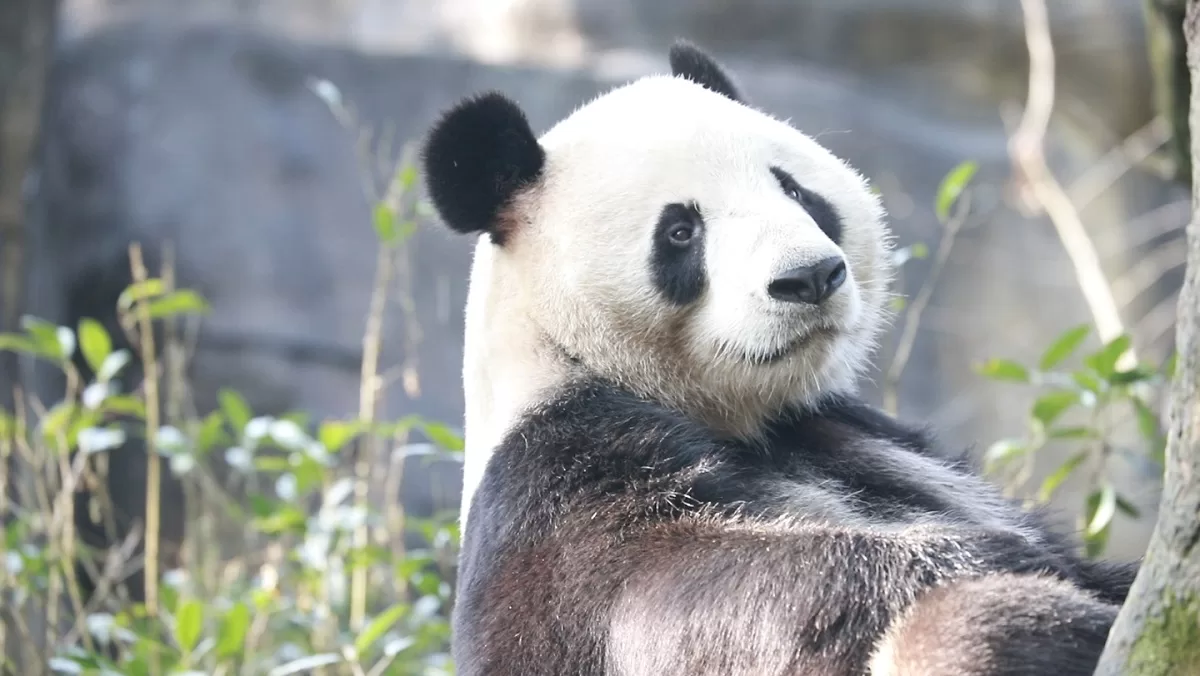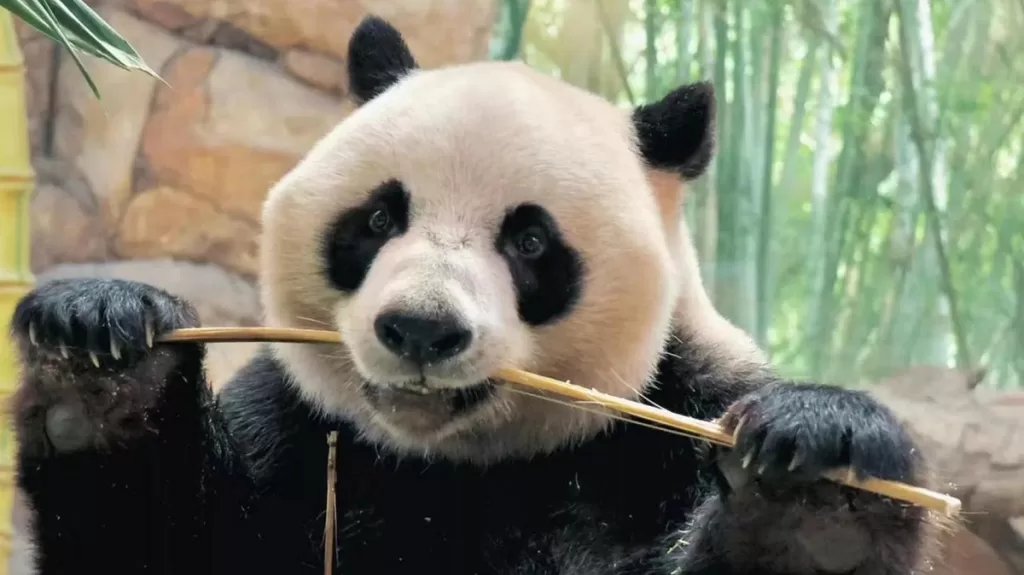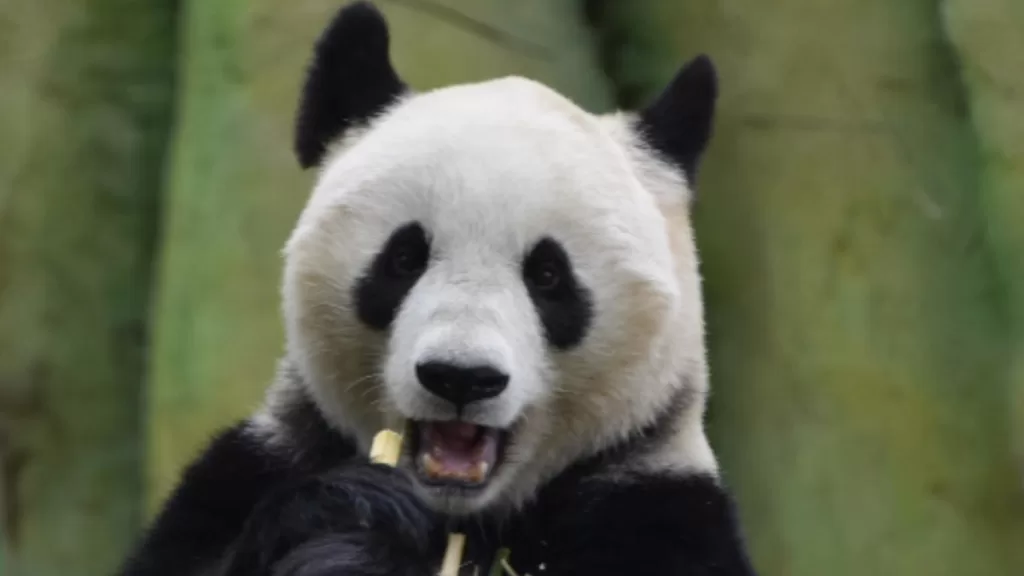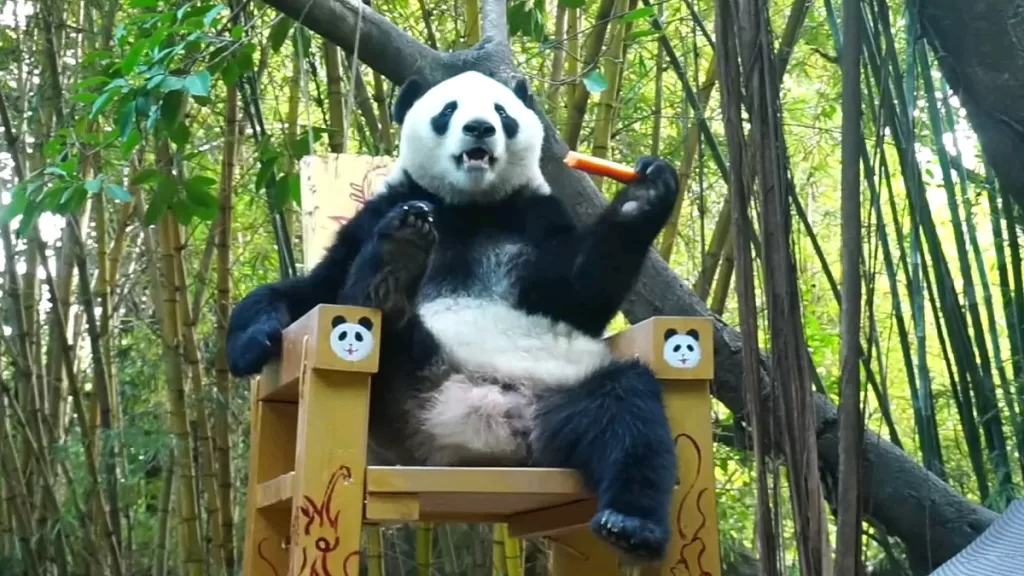Cheng Jiu (成就/Chengjiu), affectionately known as “Little Grey,” is the panda that embodies resilience and charm. Born on July 18, 2014, he captured hearts with his adorable greyish fur and a spirit as strong as his name, symbolizing the number nine. From playful moments in Hangzhou to overcoming a serious health challenge, Cheng Jiu’s journey is filled with courage, humor, and an undeniable ability to win over everyone around him. His story is a reminder of the strength hidden in cuteness!
Basic Information
- Name: Cheng Jiu (成就)
- Meaning of the Name: Achievement and Accomplishment
- Nicknames: Little Grey (小灰灰)
- Date of Birth: July 18, 2014
- Gender: Male
- Studbook Number: 917
- Birthplace: Chengdu Research Base of Giant Panda Breeding
- Mother: Cheng Ji (成绩)
- Siblings: Ji You (绩优), Ying Ying (迎迎), Cheng Shuang (成双), Cheng Dui (成对), Ni Ni (妮妮), Ji Li (绩丽), Cheng Da (成大), Cheng Shi (成实)
Life Experience of Panda Cheng Jiu
Name Origin: Cheng Jiu was born a healthy and robust cub, weighing a hefty 212 grams at birth. He was the ninth cub born to his mother, Cheng Ji, and was given the name “Cheng Jiu,” with “Jiu” symbolizing the number nine. As a youngster, his fur had a slight greyish hue, earning him the nickname “Xiao Hui Hui,” meaning “Little Grey.”
Journey to Hangzhou: On September 20, 2016, Cheng Jiu, along with another panda named Shuang Hao (双好), was sent to the Hangzhou Zoo to begin his “working trip.” During his time in Hangzhou, Cheng Jiu once became a source of amusement for netizens when he accidentally broke the second step of a platform while stepping on it. He also once waited in the chilly wind for over an hour, just to meet visitors.
Return to Sichuan: In November 2019, Cheng Jiu returned to Sichuan and was relocated to the Dujiangyan Panda Valley.
Illness and Treatment
Cheng Jiu’s resilience was tested in early 2018 when he fell seriously ill. On the afternoon of February 24, zookeepers at Hangzhou Zoo noticed a sudden change in his behavior—he showed signs of fatigue and a reduced appetite. A preliminary examination by veterinarians diagnosed him with an abnormal mucus reaction, potentially linked to digestive issues.
By the morning of February 25, his condition had worsened. Cheng Jiu passed jelly-like mucus but still refused to eat and appeared weak. In response, the zoo established a medical team to monitor him around the clock. His condition continued to deteriorate over the next few days, and on February 26, he exhibited more alarming behavior. After multiple tests, he was diagnosed with an upper gastrointestinal obstruction, which severely impacted his digestive system.
On March 2, experts from the Chengdu Research Base of Giant Panda Breeding arrived at Hangzhou Zoo to collaborate with local veterinarians and medical experts from Sir Run Run Shaw Hospital. They decided to perform a gastrotomy, a surgical procedure to remove the blockage in his stomach. The operation lasted four hours and was successful, but Cheng Jiu faced several post-surgery complications.
Thanks to the coordinated efforts of the rescue team, Cheng Jiu’s condition gradually stabilized. On March 24, he showed significant progress when he independently ate bamboo leaves for the first time post-surgery. After more than ten hours of digestion, bamboo leaf remnants were found in his stool, confirming that his stomach function had returned to normal, and he had regained tolerance for bamboo and bamboo shoots.




